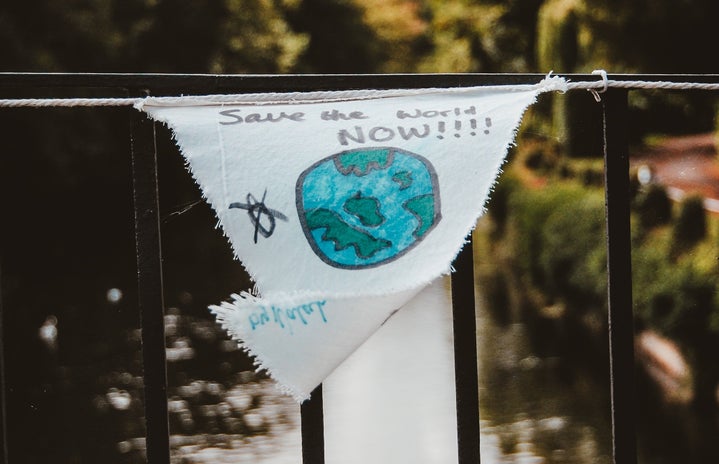Every year, on December 31st, we come together with our friends and loved ones to celebrate the death of the previous year and the beginning of a new one. And 2017 definitely gave us reason to celebrate its end, from some of our favourite celebrities dying to America completely losing its mind. New Year’s Eve is a culturally agreed upon stopping point, a mandatory update for life’s web browser with too many tabs open. This is also a time when many people choose to make a concentrated effort to better themselves in some way. Maybe they promise to take up yoga, or to start eating better. Or it could be a goal with a particular achievement, like finally getting your driver’s license or asking out that cutie you’ve had a thing for. One of the most common New Year’s resolutions is one of the broadest, to be a better person.
I personally don’t make New Year’s resolutions (due to anxiety, I spend pretty much all of my free time thinking about ways I need to improve myself, so it doesn’t have as much impact for me). That doesn’t change how fascinating this practice is from an anthropological point of view. Where did the idea of a New Year’s resolution first come from? Why would it be in the middle of winter? In fact, the earliest recorded New Year’s resolutions, those from roughly 4,000 years ago in Babylon, were made later in the year to coincide with the planting of crops. They would hold a 12-day festival in which they reaffirmed their allegiance to the reigning king, or ushered in a new king. They would also make promises to the gods to repay outstanding debts. If they kept their promise, then it was believed that the gods would show them favour.
The more modern practice of celebrating the new year in January comes from Rome. Emperor Julius Caesar altered the calendar to establish January 1st as the beginning of the new year, named for Janus, the Roman god of gates, doors, beginnings, and transitions. The idea was to create a symbolic tie between the previous year and the upcoming one, and so the Romans offered sacrifices and made promises of good conduct for the coming year. The reach of the Roman Empire at the height of its power allowed these practices to spread and flourish with some uniformity, travelling all across Europe. Christianity has historically been quick to adapt and adopt practices from pagan cultures to help ease the conversion process, and while there was a period where the Roman practice of celebrating the new year was not kept due to these pagan roots, it was eventually restored in 1582 by Pope Gregory XIII. Countries with heavy colonial ties generally adopted the solar Gregorian calendar, though other cultures today do celebrate New Year’s Day at different times of the year (See Rosh Hashanah, Muharram, and Chinese New Year).
Despite being a historically religious holiday, the common New Year’s celebration in North America is entirely secular now. Resolutions are generally promises of self-improvement made individually as opposed to a divine power. Our modern traditions have a secular origin as well: one of the most bizarre New Year’s traditions is the Times Square Ball dropping to mark our passage into the next year. This first happened at the end of 1907, and was orchestrated by the then-owner of The New York Times, Alfred Ochs, both to replace the fireworks displays of the past and to bring attention to the Times’ new headquarters in Times Square. In a way, making resolutions is its own form of religious ceremony, as people come together in a common celebration and make promises to be better. However, statistically, the people who do make these promises tend to break them. Maybe it’s unfairly optimistic to hope that those individual promises will add up to something in 2018, but I really hope it does lead to people bettering themselves. If you are still keeping up with your New Year’s resolution, then good for you. You can achieve your goal, and you can improve yourself. And if you are one of those people who has lost their motivation, well, it’s never too late to start again. May the gods show you fortune in your task.

